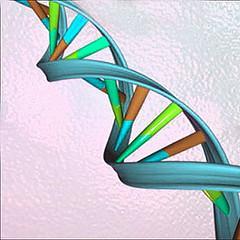 The importance of gene testing is becoming more apparent every day, and a number of companies are making the technology more accessible for medical professionals everywhere. Unfortunately, companies seeking to patent genes could potentially restrict the usage of DNA testing by putting doctors at risk of lawsuits. As a result, several companies are hoping the Supreme Court will rule that genes can’t be patented as cases are brought to their attention.
The importance of gene testing is becoming more apparent every day, and a number of companies are making the technology more accessible for medical professionals everywhere. Unfortunately, companies seeking to patent genes could potentially restrict the usage of DNA testing by putting doctors at risk of lawsuits. As a result, several companies are hoping the Supreme Court will rule that genes can’t be patented as cases are brought to their attention.
Presently, a major lawsuit involving Myriad Genetics’ aim to patent isolated DNA has captured the attention of everyone involved. While some say that the case holds major symbolic importance, others doubt that the ruling will carry much practical weight. Below is more information about this ongoing issue.
Myriad Genetics Being Sued
Association for Molecular Pathology v. Myriad Genetics is testing whether the patents held by Salt Lake City-based Myriad Genetics are valid or not. The company has patented isolated DNA that contains the BRCA1 and BRCA2 genes, which in some forms can increase risks of certain cancers, including those of the breasts and ovaries. According to Myriad Genetics, the patents in question are important because they preserve its ability to continue research. However, many patients and doctors have said that the company’s patents have reduced other research and availability of medical tests concerning genes. The case everyone is now watching dates from 2009, when The Public Patent Foundation and the American Civil Liberties Union sued Myriad Genetics.
Broader Implications of the Case
Throughout the biotechnology industry, there are concerns about what the lawsuit’s resolution might affect. Outside of this case, there are already many gene patents that may damage genome sequencing and personalized medicine in the future as a result of preventing clinicians and companies from being able to inform patients of their disease risks from their own genes. According to different estimates, the percentage of genes already patented is between 20 and 41 percent. Some legal experts say that about three quarters of the patents could potentially limit genetic testing.
More Legal Opinions
Many legal experts agree that the majority of DNA patents are unlikely to interfere with whole-genome testing of patients by companies and clinics determining how to pursue treatment. In fact, patents like those held by Myriad Genetics are becoming less common. Quite a few American gene patents were issued before the human genome had been sequenced and are no longer maintained and therefore enforced. As a result, the issue is barely relevant today.
Some experts are unworried about the Myriad Genetics case, but not everybody is so quick to dismiss its importance. Doctors and clinics are concerned about being sued for treating patients if the courts back up Myriad. Although this might not affect legal DNA paternity testing, it could reduce the ability of doctors to inform patients about their risk of cancer and other diseases. In addition, Myriad also maintains other genetic tests that aren’t affected by the current lawsuit. Whether the court lets the company keep its patents or not, availability of those other tests won’t change for patients or clinicians.
Image Credit: AJC1

